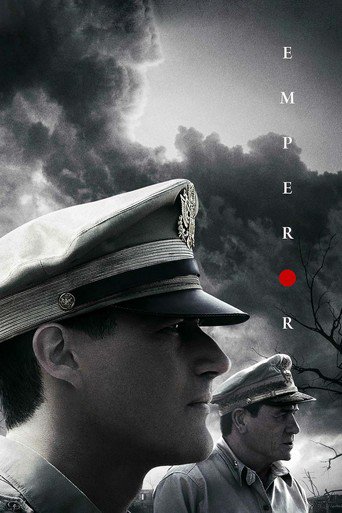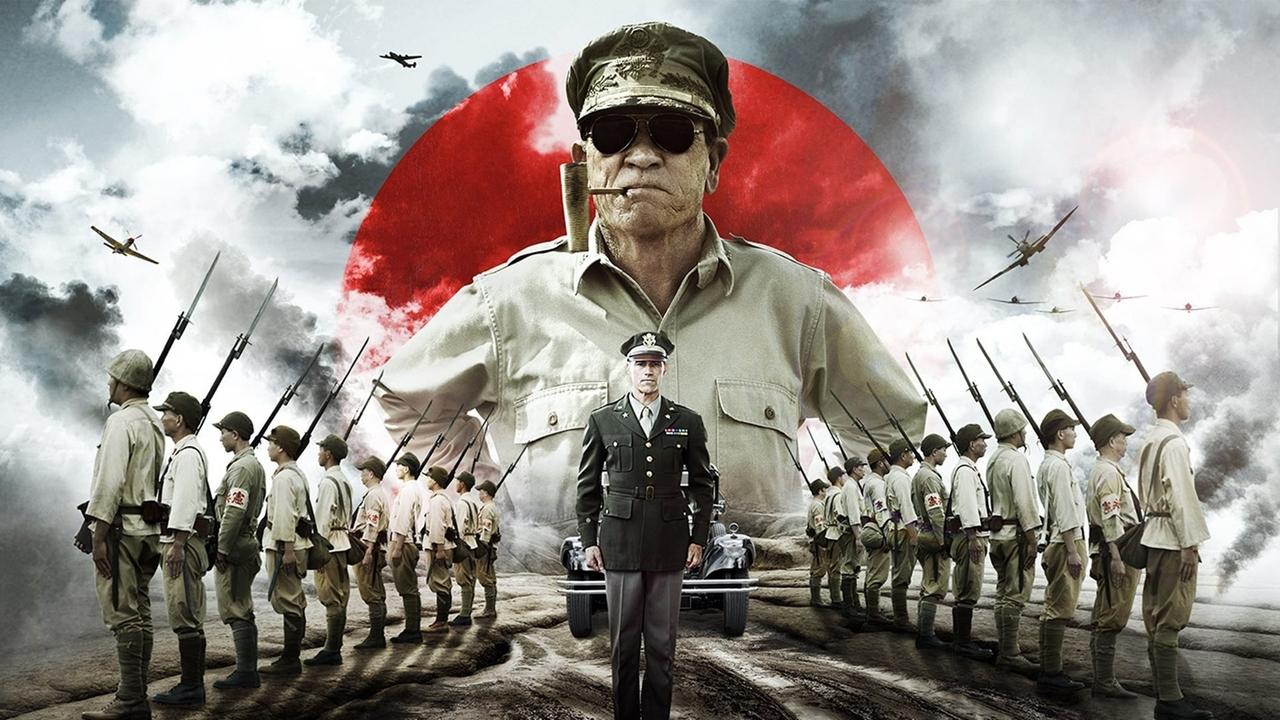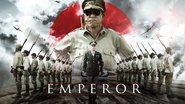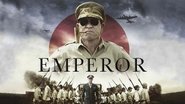BoomerDT
When I came upon this on Netflix, I figured it was just an another bio about MacArthur, but being a fan of Tommie Lee Jones I thought I'd give it a shot. I was pleasantly surprised that instead of this being focused on the General, it was about the US Army's occupation of Japan, just less than a month after the atomic bombs dropped on the island convinced Hirohito to order his militarists to capitulate before facing complete destruction. MacArthur and the Army have a difficult situation, they are occupying and enforcing martial law with a relatively small force, on the home island of our foe, whose population had been very willing to fight to the death rather than surrender just a few weeks earlier. He also has the responsibility of rounding up and bringing Japan's war criminals to trial and he assigns Brigadier General Bonner Fellers, an expert on Japan, the task of leading the investigation and to gather the information to decide whether Emperor Hirohito should also bear the same responsibility as Tojo and the other militarists who directed Japan's brutal war campaign in SE Asia and the S Pacific. Fellers, played by Mathew Fox, has been advised by MacArthur that he and the American public want to see Hirohito stand trial as a war criminal. But Fellers has pointed out that the peace in Japan is tenuous and that arresting the Emperor, seen as a deity to the population, could be disastrous as it may incur full scale rioting among the population, which would be exactly the opportunity Stalin and the Russians are looking for.Unfortunately, rather than just be focused on this story, the film has to meander to a totally contrived and BS love story, as Fellers is trying to find his ex-love, a Japanese girl he had met in college in the US and that he continued his relationship with when he was assigned as a military attaché in Japan before the war. There are a number of flashbacks, as Fellers tries to understand their love affair in the context of the differences between western and Japanese culture, something that has been done a number of times in films. I really don't understand the purpose, especially because this story simply wasn't true-Fellers had married an American woman in 1925 who had lived in Japan with him. The story of whether to bring Hirohito to trial is a good one and the scene where he meets with MacArthur is fascinating. Great job by Jones who plays MacArthur as the American Caesar for all it's worth.
FL Engineer
As a military history buff, particularly of World War Two, and being familiar with excellent non-fiction and fiction works in print from great authors such as John Toland, Richard Franks, and William Manchester dealing with the end of the Pacific war, MacArthur, and the occupation, I really wanted to like this movie, just for its subject matter alone. But I was significantly disappointed with this film in several key respects.Warning - several of the following points will involve spoilers: 1) The fictional love interest involving General Fellers significantly detracted from the plot, the flow of action (with its constant flashbacks,) and the seriousness of the film. It added nothing but unnecessary and confusing drama, including the silly "Japanese lover" appellation given to Bonner by a competing staff MacArthur toady.2) I am sorry, but I was not impressed at all with Tommy Lee Jones's portrayal of MacArthur, which was actually just yet another portrayal of Tommy Lee Jones by Tommy Lee Jones ... as he does in nearly all of his film roles. The actual "American Caesar" MacArthur was nothing at all like TLJ's southern drawling cartoonish portrayal of the man, which transformed MacArthur into a two-dimensional caricature of the patrician American general. No American actor in a film yet, including the late Gregory Peck, has ever accurately captured the persona of one of the most accomplished, egotistical, intellectual, visionary, infuriating, devoted, yet enigmatic military leaders in our national history.3) Collapsing the entire investigation of Hirohito's role in starting the Pacific war into 10 days only served to add fake urgent drama to the setup ... it was both untrue (the actual timeline was about 5 months) and reflected a purely political viewpoint that was not matched by the facts or motivations of key players at the time.4) It was all well and good for General Fellers to conclude that nobody could determine with certainty after the fact what Emperor Hirohito's complicity was in the start of the Pacific war. That could have been a compelling finding ... but exploring that issue in at least some reasonable detail, instead of the airy dismissal given at the end of the film, as applied by the Fellers character (no doubt to make up for lost time from wasting most of the film's screen time on those silly flashbacks to the fake love affair with the Japanese teacher) completely detracted from the serious issues that the film was supposed to address. This matter deserved an in-depth investigation in late 1945, and an in-depth treatment in this film as well.5) The acting by the Japanese characters seemed fairly well done (in contrast to TLJ, and Matthew Fox's wooden portrayal of Fellers), but the Japanese characters themselves were far more deserving of exploration than this film provided. Particularly, the most telling insight was offered by the Lord Privy Seal Kido character ... i.e., his statement that the Emperor was really just a ceremonial religious figurehead before, and during the war, who only rose to the occasion in August 1945 to exert the Imperial Will. That is, his demand that his war cabinet agree with him to accept the Allied surrender terms. The drama with which this scenario was infused was almost completely ignored in the film. The film did in fact depict the attempted military coup just before the surrender, but it did not bother to describe who was actually conducting the coup and what they intended to accomplish, and exactly whom the plotters intended to assassinate.That the Emperor was not really in charge of Japanese imperial policy in the late 1930s and early 1940s was, of course, completely counter to the Western notion of an Emperor's role and authority. Yet that concept and fact, along with the fact that the Emperor finally forced his will upon the militarists in charge of the regime, was the lynch-pin of the film's reason for being, and for MacArthur's decision regarding the prosecution of Hirohito.All in all, this film disappoints almost entirely, including dramatically, factually, and thematically. Realistically, a proper treatment of what was involved even just in MacArthur's decision whether or not to prosecute Hirohito deserves at least a mini-series level of treatment, not a less-than-two-hour film.
Gary Kramer
Great acting from most of the cast, and well filmed. The sets of bombed Tokyo a shocking in their desolation and you really get a feel for "surviving".Despite the fact that the film is based on actual events, this is not a docudrama. Many liberties are taken with the facts so don't watch this film looking for education. It's a real shame that the script could not mirror the actual events better. This was a turbulent time, and important decision were still being made. The true story would probably have been every bit as good as what we saw, perhaps even better if it was told with care.Also, here are parts of the Japanese dialogue that just don't ring trueThe fictitious love interest of General Bonner Fellows, while somewhat intriguing, was a) not true, and b) very distracting to the main story. It's mystifying to me why this was inserted in the film except to show a one-star general being derelict in his duty. If it was to highlight the differences in culture, then it failed miserably as only hints were given.
kosmasp
While not really something that has any relation to something happening right now or when the movie came out, this sort of history lesson is quite nicely done. Matthew Fox back in a plane (brings back memories, I know), but lands quite safely in Japan. Namaste indeed. But that's not where the movie ends, it's where it begins. With the back-story of Foxs character and what Tommy Lee Jones character tries to do, we have a lot on the line.And while they are playing real life people (people that existed/do exist), I'm not sure where they took some liberties for dramatic purposes. I do know they tried to be as open minded and respectful to the portrayal of Japan. And I think they did succeed in that. A drama thriller that is surely more interesting to some people than to some others.


 AD
AD








